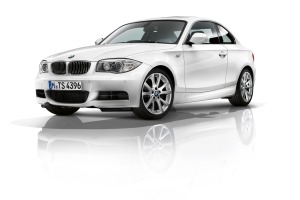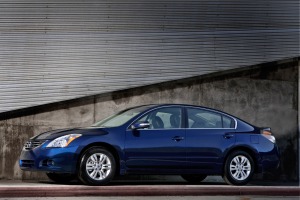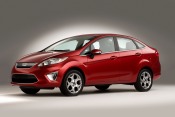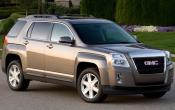What's Holding Diesel Back in the U.S.?
The Cars Are Better Than Ever, but Diesel Is Still a Tough Sell
A few years ago, experts predicted that the days of "dirty diesels" were over, and clean diesels would quickly reach the popularity of hybrids. They looked at the widespread acceptance of diesel vehicles in Europe and figured the same thing would happen here in the U.S. But the diesel revolution never happened. Fuel prices, lack of variety and an inclination toward hybrids kept diesel vehicles relegated to a niche market. But if the new breed of diesels is so good, what's holding them back?
Price of Fuel
According to the U.S. Energy Information Administration, since September 2004, the ... Back to article







All Article Comments
4 comments
By jettatdigreen
on 02/02/11
12:47 AM PST
Volkswagen continues to cause the diesel reputation to spiral downwards. Reliability on the TDiS is extremely bad. Horror stories of engine and turbo meltdowns, electrical failures, and sky high repair costs prove the new diesels are no better than the old.
Recommend (1) (0)
Report It
By concinnitas
on 02/12/11
9:01 AM PST
Biodiesel is the clean alternative to petroleum based diesel. Also, to make biodiesel it uses cooking oil, a renewable energy source from restaurant fryers. Most biodiesel companies provide the pumping service of the cooking oil for free. This is a great alternative to hybrid vehicles that still have the problem with batteries. If biodiesel production increased with the help of government subsidies the demand could easily be there to compete with hybrid vehicles.
Recommend (0) (0)
Report It
By jarvis888
on 03/31/11
8:37 AM PST
Don't people realize they would be saving more money in the long run by switching to diesel engines that get much higher MPG, even if the price of the fuel is higher?
Recommend (1) (0)
Report It
By rte2commuter
on 04/17/11
12:10 PM PST
After driving a VW Jetta TDI for 9+ years and 226k miles, I did some math to figure out if the VW TDI actually wins in overall costs. I will admit, my Jetta was in the shop a lot. And I always took it to the dealer which probably made it as expensive as it gets. I saved all my records so I know exactly what I spent ... and my frequent repair bills on the Jetta ended up costing $1550/yr. An "average" car is supposed to cost about $650/yr in maintenance, so I was spending more than twice as much as the average car owner on repair bills. EVEN SO, my 45 mpg Jetta still won in overall costs against an "average" gas car getting 24 mpg because the gasser would have been 1.6 times as expensive at the pump (and that's assuming diesel is always 15% more expensive than gas). Of course, we don't know if the gasser would have held out for 226k miles ... diesel cars have very long life expectancies. So last year I compared a 2010 Honda Fit (est. 33 mpg) with a 2010 VW Golf TDI. The (1) better mileage of the Fit, (2) its lower MSRP, and (3) Honda's great reputation for low maintenance costs made the Fit look like a worthy competitor for the TDI. If we assume the Golf will be as pricey as the Jetta was for maintenance, the Honda Fit will indeed win in overall costs by about $3600 over 9 years and 226k miles (again - assuming the Honda Fit lasts that long). So if the overall cost of driving your car is the only thing that matters, you probably can beat a TDI. Then again, if other things matter - e.g. safety, winter driving, stability at high speeds, handling, a quiet ride, fit & finish, and the amazing torque of the TDI - I'll take the TDI any day. The Golf TDI is a really sweet car - you get spoiled fast. So even if that means I have a car that's in the shop a lot, I've got to say I'm very happy with the TDI and I would recommend it to anyone who does a lot of driving. (And my VW dealer does give me a loaner car when I need one). BTW - those EPA estimates on the TDI's are always low because they are based on new cars that haven't been broken in yet. I've got 23k on my 1-year-old 2010 Golf TDI now, and it's been averaging 40-45 mpg depending on the time of year (winter mpg runs lower than summer mpg). That's a good deal higher than the EPA estimates they show on the sticker.
Recommend (0) (0)
Report It